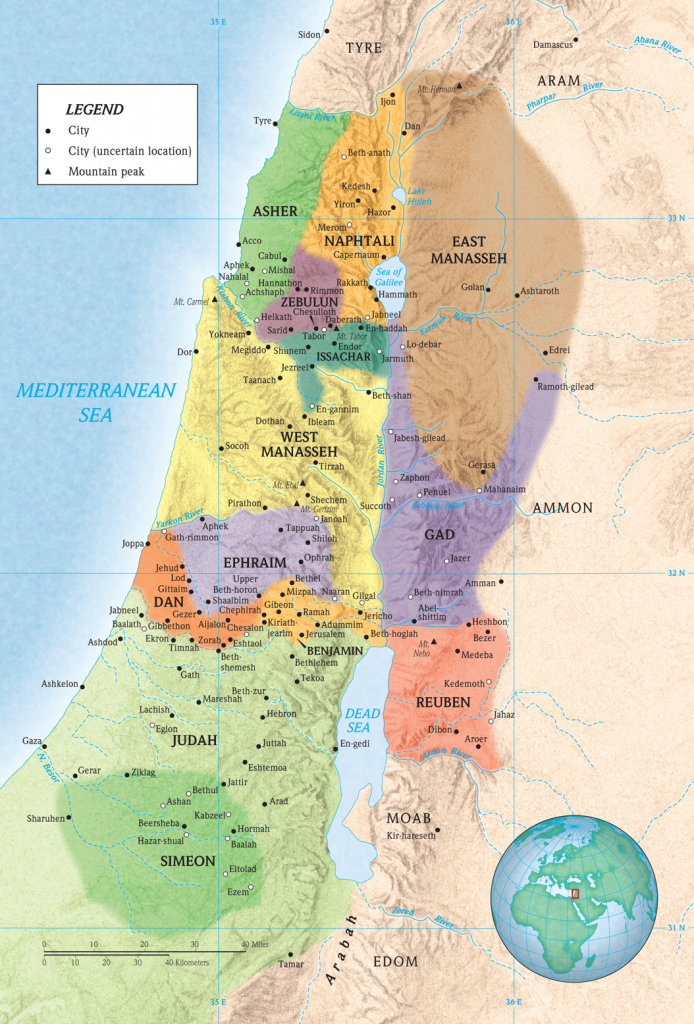Joshua 13-16 – The Tribal Allotments Begin
Joshua 9-12 – The Tricky Gibeonites, and the Taking of the Land
March 23, 2022Joshua 17-20 – The Allotments Continue
March 25, 2022Joshua chapter 13 is the first of nine chapters that describes the division of the land among the tribes of Israel (see map below). This would serve as the historical reference of the boundaries of the tribal inheritances, which cannot be permanently taken from those tribes (even if sold, it would be returned in the Jubilee). The chapter begins with recognition that there was still much of the land to be taken (13:1). The first peoples mentioned are the Philistines, which Israel would not drive out of the land completely (v. 2). Notice that God promises to drive out the inhabitants Himself, as we have seen throughout (v. 6). So sure is His promise that He instructs Joshua to allot the land that isn’t even taken yet (vv. 6-7).
Verses 8-13 are a reminder that two-and-a-half tribes already received their allotment on the eastern side of the Jordan. Note that part of that inheritance is “the region of the Geshurites and Maacathites” (v. 11), but that not all of the peoples were driven out (v. 13). Verse 14 reminds us that the service of God is the inheritance for the Levites, which means that God Himself is their inheritance (v. 33). The rest of the chapter details the exact inheritances of these eastern tribes.
Chapter 14 begins the description of the inheritances for the western tribes. Caleb, because of his faithfulness to God, is given his inheritance. Note in verse 12 that the Anakim that frightened ten of the spies still did not frighten Caleb. It is fitting that Caleb would inherit and rename the city named for the “greatest man among the Anakim” (v. 15). Chapter 15 records the allotment for Judah. Beginning in verse 13 we see that Caleb does indeed continue to drive out the Anakim, as he does other inhabitants of the land, along with his brother Othniel, who will become the first judge of Israel. A careful reading of the cities in the inheritance of Judah reveals that all five of the cities of the Philistines are contained within the borders of Judah. And as we saw with the eastern tribes, Judah fails to completely drive out he inhabitants of their territory (v. 63). Chapter 16 briefly describes the inheritance of Ephraim. Important to note is verse 10, where we are told that Ephraim failed to completely drive out the inhabitants of their territory. We see a pattern emerging…
Chapters 13-21, which record the details of the tribal inheritances, are one of those portions of Scripture that we tend to gloss over. But we shouldn’t. This is all part of redemptive history. God is sovereignly moving history forward with a purpose. Even the peoples that Israel fails to drive out have a purpose in God’s plan of redemption.

